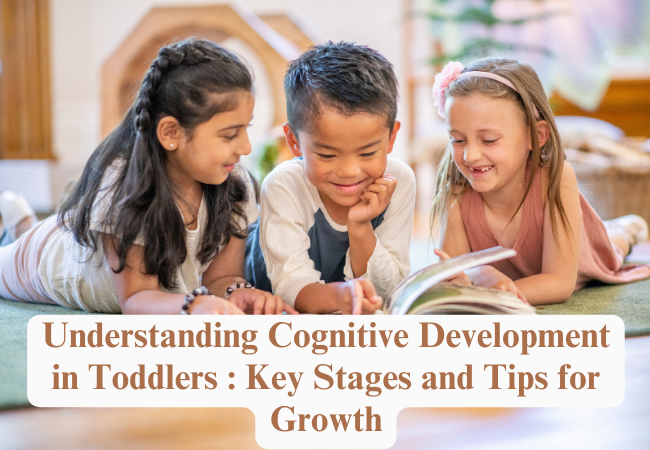Early Childhood Development: Essential Tips for Parents
Discover essential tips for early childhood development. Learn how to support your child’s growth, cognitive skills, and emotional well-being during their formative years.
Early childhood is a crucial time in a child’s life. From birth to about age 8, children grow and learn at an amazing speed. As a parent, you play a big role in helping your child develop. This guide will give you tips on how to support your child’s growth during these important years.

Understanding Early Childhood Development
Early childhood development covers several areas:
- Physical development
- Cognitive development
- Social and emotional development
- Language development
Each area is important for your child’s overall growth. Let’s look at how you can support each one.
Physical Development
Physical development includes both gross motor skills (like running and jumping) and fine motor skills (like writing and buttoning clothes).
Tips for Supporting Physical Development:
1. Encourage active play:
- Let your child run, climb, and explore safely
- Play catch or kick a ball together
- Dance to music
2. Provide opportunities for fine motor practice:
- Offer crayons and paper for drawing
- Let your child help with simple tasks like setting the table
- Play with building blocks or puzzles
3. Ensure proper nutrition:
- Offer a balanced diet with plenty of fruits and vegetables
- Limit sugary snacks and drinks
4. Establish good sleep habits:
- Set a regular bedtime routine
- Make sure your child gets enough sleep for their age
Cognitive Development
Cognitive development involves thinking, problem-solving, and learning. It’s how children understand and interact with the world around them.
Tips for Supporting Cognitive Development:
1. Engage in play-based learning:
- Use everyday objects to teach counting and sorting
- Play memory games
- Do simple science experiments together
2. Read together daily:
- Choose a variety of books
- Ask questions about the story
- Let your child “read” to you by describing pictures
3. Encourage curiosity:
- Answer your child’s questions
- Help them find answers through observation or research
4. Provide new experiences:
- Visit museums, parks, and libraries
- Try new activities together
Social and Emotional Development
Social and emotional skills help children understand their feelings and get along with others.
Tips for Supporting Social and Emotional Development:
1. Show affection:
- Hug your child often
- Tell them you love them
2. Teach emotional literacy:
- Help your child name their feelings
- Talk about your own emotions
3. Encourage social interaction:
- Arrange playdates
- Visit playgrounds or join parent-child groups
4. Set clear, consistent rules:
- Explain the reasons behind rules
- Use positive discipline techniques
5. Praise effort and process:
- Focus on how hard they tried, not just the result
- Encourage a growth mindset
Language Development
Language skills are crucial for communication and later academic success.
Tips for Supporting Language Development:
1. Talk to your child often:
- Describe what you’re doing
- Ask open-ended questions
2. Read aloud every day:
- Point to words as you read
- Discuss new vocabulary
3. Sing songs and nursery rhymes:
- Use hand motions to go with the words
- Make up silly rhymes together
4. Limit screen time:
- Choose high-quality, educational programs when you do use screens
- Follow age-appropriate screen time guidelines
5. Model good communication:
- Use proper grammar and pronunciation
- Show how to take turns in conversation
Creating a Supportive Environment
Your child’s environment plays a big role in their development. Here are some tips to create a supportive home:
1. Provide a safe space to explore:
- Childproof your home
- Create areas for different types of play
2. Establish routines:
- Have regular mealtimes and bedtimes
- Create predictable daily schedules
3. Limit distractions:
- Turn off the TV during meals and playtime
- Have quiet times for reading and thinking
4. Offer choices:
- Let your child make simple decisions
- Respect their preferences when possible
5. Be a good role model:
- Show kindness and respect to others
- Demonstrate healthy habits
When to Seek Help
While every child develops at their own pace, there are signs that might indicate a need for extra support:
- Not meeting major milestones for their age
- Losing skills they once had
- Difficulty interacting with others
- Extreme behavior problems
If you’re concerned about your child’s development, don’t hesitate to talk to your pediatrician. Early intervention can make a big difference.
Conclusion
Supporting your child’s early development is one of the most important things you can do as a parent. By providing a loving, stimulating environment and engaging with your child in meaningful ways, you’re setting the foundation for their future success.
Remember, every child is unique and develops at their own pace. What’s most important is to enjoy this special time with your child, celebrate their achievements, and provide the support they need to grow and learn.
By following these tips and staying attuned to your child’s needs, you’re giving them the best possible start in life. Embrace the journey of early childhood development – it’s a rewarding experience for both you and your child!
For more information and guide, visit usaparentingtips.com






